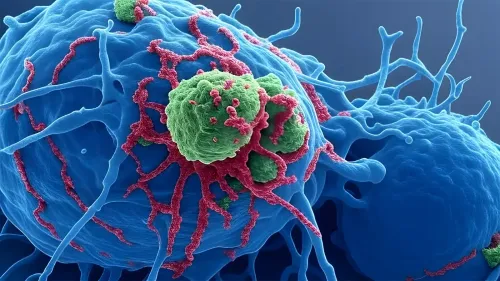Research Connects DNA Characteristics to Lung Cancer Risk from Smoking

Synopsis
Key Takeaways
- DNA structure plays a role in lung cancer risk.
- Benzo(a)pyrene binds to DNA and causes damage.
- Well-organized DNA can repair itself better.
- Protein regulation can either protect or expose DNA.
- Repair capacity is crucial for mutation occurrence.
Jerusalem, Feb 13 (NationPress) A group of researchers from Israel has uncovered how DNA structure and chemical modifications can influence the likelihood of developing lung cancer due to smoking. The team at the Hebrew University of Jerusalem studied benzo(a)pyrene, a harmful substance found in cigarette smoke that binds with DNA, interfering with its normal function and causing cell damage, as reported by Xinhua news agency.
The findings, published in Nucleic Acids Research, reveal that the organization and chemical alterations in DNA can determine the extent of damage inflicted by smoking, the effectiveness of cellular repair mechanisms, and the accumulation of mutations.
It was found that specific segments of DNA, especially those that are more accessible and active, are more susceptible to damage but possess a greater ability to self-repair, resulting in fewer mutations over time. In contrast, regions that are less efficient at repair tend to accumulate mutations, which may elevate cancer risk.
The research also indicated that proteins involved in regulating gene activity can, in some instances, shield DNA from damage; however, they can also increase vulnerability in other cases.
The study emphasized that the body's capacity to repair DNA damage is a more crucial factor in determining mutation occurrence than the extent of the damage itself. This research provides valuable insights into the mechanisms through which smoking causes lung cancer by damaging DNA and inducing mutations, potentially guiding future cancer prevention and treatment strategies.
The World Health Organization (WHO) reports that tobacco consumption contributes to 25% of all cancer fatalities worldwide and is the leading cause of lung cancer. This remains a critical public health challenge in the region, where approximately 186 million individuals (or 26% of the adult population) currently use tobacco.
Individuals who smoke are at a risk of developing lung cancer that is up to 22 times higher than that of non-smokers.









